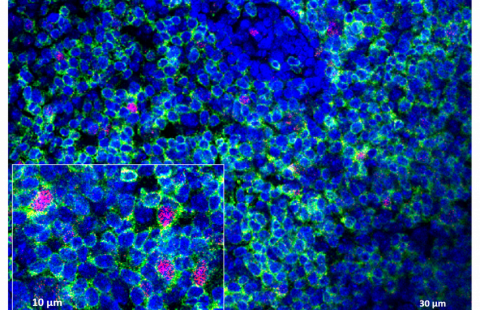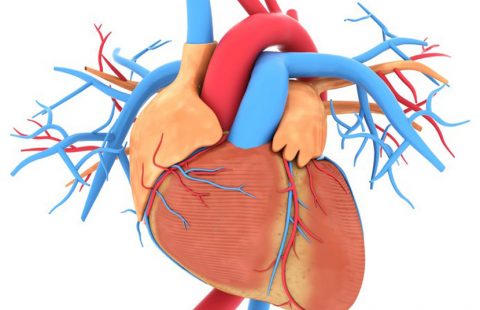
The teams of hepato-gastroenterology department of adult Bicetre Hospital, AP-HP, in collaboration with the department of neurology adult, Inserm and the Université Paris-Sud, show that a derivative of somatostatin may be effective to treat chronic diarrhea suffered by patients with family amyloid neuropathy (NAF). This side effect concerns a quarter of patients after 5 years of follow-impairing their quality of life.
The results of this study, which highlight once again the expertise of the AP-HP in the treatment of rare diseases, are published in the journal Plos One .
Professor Franck Carbonnel and Dr. Michael Collins, Inserm researcher of Hepato-Gastroenterology department of adult Bicetre Hospital, AP-HP conducted a retrospective study of four patients with familial amyloid neuropathy (NAF). This is a rare progressive genetic disorder that causes multiple organ dysfunction and loss of autonomy.
The teams analyzed particularly gastrointestinal side effects such as diarrhea, nausea, vomiting, abdominal pain and incontinence. A quarter of patients after 5 years of follow suffer from chronic diarrhea. Diarrhea is a symptom very debilitating for patients.
The researchers show that similar to somatostatin, octreotide and lanreotide, appear effective for treating chronic diarrhea. Nine of the fourteen patients who received this treatment had a remission of chronic diarrhea after 6 months follow-up. These molecules are already available for other medical indications, including the treatment of neuroendocrine tumors, hemorrhagic complications of portal hypertension and some endocrine disorders. They are also used off-label in the treatment of severe dumping syndrome.
Their use in the refractory diarrhea had already been studied in the context of HIV, chemotherapy-induced diarrhea or diarrhea secondary to digestive suffering from scleroderma.
Induced diarrhea amylose is a multifactorial diarrhea, but involves disorders of the secretion of digestive hormones (including somatostatin) and of intestinal motility disorders.
Often humps transit aggravate constipation in these patients, associated with dysmotility. Sandostatin acts on intestinal secretion and intestinal motility in complex ways. Treatment with octreotide should be monitored and patients with amyloidosis warned of the risk of hypoglycemia.
This work was conducted in collaboration with the teams of Adult Neurology Service – reference center for family amyloid neuropathy and other neuropathies few devices – Professor Adams that showed the effectiveness of the drug candidate Patisiran, Interferent RNA, promising to treat and improve familial amyloid neuropathy transthyretin in July 2018.
To date, in France there are between 40,000 and 50,000 people with neuromuscular disease (NM).
The conditions under national chain of neuro muscular diseases FILNEMUS include muscle diseases (myopathy), diseases of the neuromuscular junction, rare diseases of the peripheral nerve and spinal muscular atrophy infantile.

